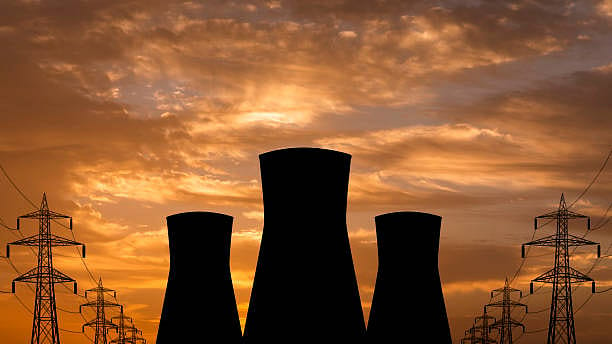Private participation in small modular reactors to boost India's nuclear capacity
ADVERTISEMENT

In the Union Budget 2024-25, Finance Minister Nirmala Sitharaman gave India's nuclear capacity addition plans a big boost by announcing private participation and the introduction of Made In India Small Modular Reactors (SMR)s in the country's nuclear programme.
"Our government will partner with the private sector for setting up Bharat Small Reactors, research & development of Bharat Small Modular Reactors and research & development of newer technologies for nuclear energy," she said in her budget speech, noting that nuclear energy is expected to form a very significant part of the energy mix for 'Viksit Bharat'.
At present, the public sector Nuclear Power Corporation of India (NPCIL) is the only authorised entity to run civil nuclear reactors in India. NPCIL's installed capacity is 8.1 gigawatt (GW) with 24 nuclear reactors. It aims to add 18 nuclear reactors by 2031–32, taking the total nuclear power capacity to 22.4 GW and generating an additional 13.8 GW of electricity. India's largest public sector power producer, NTPC, is developing two nuclear plants in a joint venture with NPCIL. NTPC is also reportedly in talks with companies from the U.S., Russia and France to make SMRs in India. Companies like Larsen & Toubro and Megha Engineering have experience in doing EPC works for nuclear plants.
With long construction times and high economic costs associated with traditional nuclear reactors affecting India's nuclear programme, the Government was planning to start Small Modular Reactors (SMR)s. These are small fission reactors with a capacity of about 300 MW or less and can be centrally manufactured at a factory and then transported to the site for installation.
January 2026
Netflix, which has been in India for a decade, has successfully struck a balance between high-class premium content and pricing that attracts a range of customers. Find out how the U.S. streaming giant evolved in India, plus an exclusive interview with CEO Ted Sarandos. Also read about the Best Investments for 2026, and how rising growth and easing inflation will come in handy for finance minister Nirmala Sitharaman as she prepares Budget 2026.
There are more than 80 SMR designs and concepts globally. Most of them are in various developmental stages and some are claimed as being near-term deployable. There are currently four SMRs in advanced stages of construction in Argentina, China and Russia, and several existing and newcomer nuclear energy countries are conducting SMR research and development, says the International Atomic Energy Agency (IAEA), the apex body of nuclear reactor operating countries.
"With nuclear energy poised to be a cornerstone of our energy mix, and innovative nuclear technologies being developed in partnership with the private sector, the future looks promising," says Sumant Sinha, founder, chairman and CEO, ReNew.
"The budget focuses on all elements of the energy value chain – managing and reducing demand, encouraging resource efficiency, enhancing energy security at a national and citizen level, driving energy transition, and indigenising technologies like nuclear reactors," says Sambitosh Mohapatra, partner and leader - ESG, Climate and Energy, PwC India.
"With India’s power requirement set to grow 1.5X by the end of the decade, a considered approach, of accelerating renewables while addressing the country’s energy security needs, is strongly evident," says Anvesha Thakker, partner and industry lead - Clean Energy, KPMG India.
